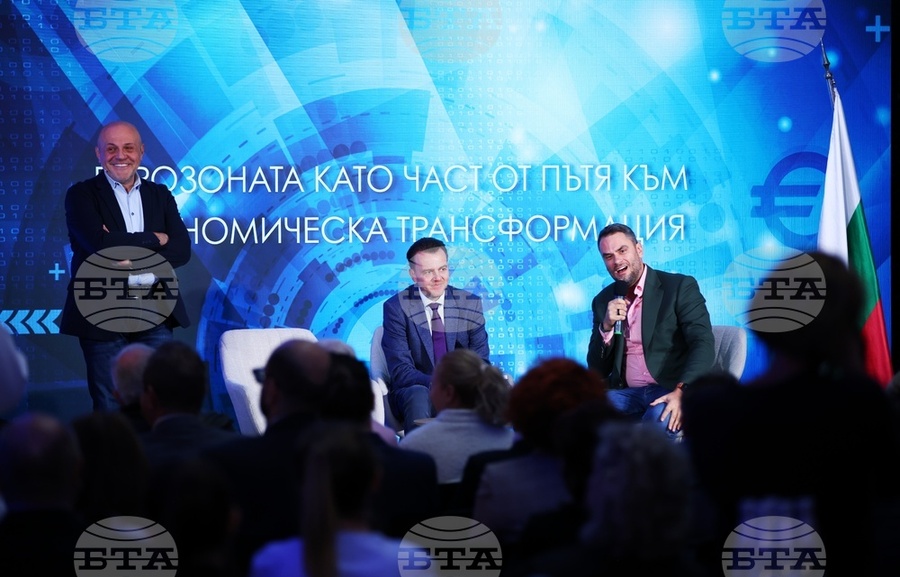The Ministry of Innovation and Growth held a second open discussion on the euro and Bulgaria's accession to the eurozone here on Wednesday. The debate was on the topic of "The euro area as part of the path to economic transformation". The forum was attended by representatives of institutions, businesses, bilateral chambers of commerce, international financial institutions, academia, the non-governmental sector, and others.
Deputy Prime Minister and Minister of Innovation and Growth Tomislav Donchev said that the discussion about the benefits and challenges of Bulgaria's upcoming accession to the eurozone should not be limited to the country’s entry date on January 1, but must continue beyond it. He said that Bulgaria currently faces several paths for its economic development. One option is to continue with modest economic growth of 1.5–2%. Another is to unlock faster growth exceeding 3%. He reiterated the need for broad political and public consensus to achieve the goal of accelerating economic growth so that Bulgaria’s GDP reaches around 80% of the EU average. Donchev stated that Bulgaria has already completed the easier part of its journey but is now approaching the end of the low-cost economic model. Going forward, more complex discussions are needed, particularly around education and the role of the state.
Petar Ganev, senior researcher at the Institute for Market Economics, highlighted two drivers for the country's economic development after January 1, 2026. One is the fiscal health of the state, and the other is the readiness and ability of the regions to develop in order to overcome existing imbalances.
According to Ilia Krastev, member of the Board of Directors of the Association for Innovation, Business Excellence, Services and Technology (AIBEST), unity is the key to turning the country's challenges into opportunities for development. However, he expressed the opinion that Bulgaria has a problem with this unity between business, administration, and academia.

